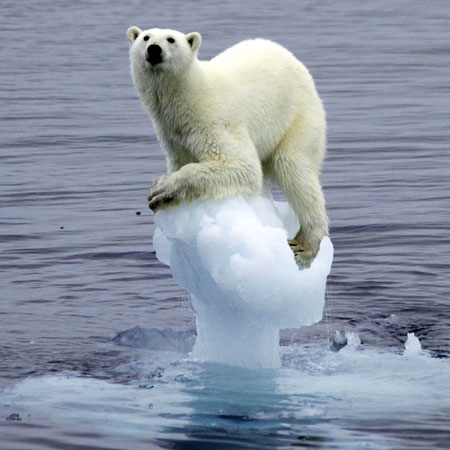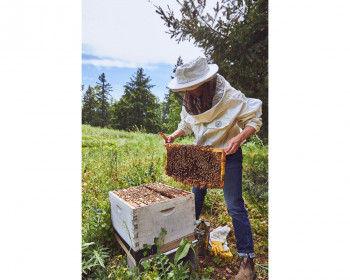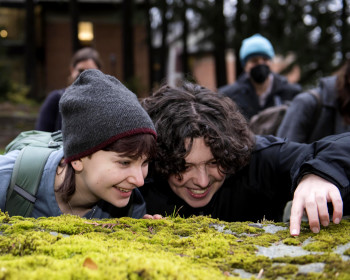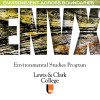Thoughts on a Conservation Internship
Open gallery

September 27, 2010
I spent last summer interning for the conservation department at the Oregon Zoo. It was an amazing experience, overall. I was given opportunities to see firsthand how conservation projects are implemented, funded, and overseen. I even spent part of the summer doing fieldwork for the Zoo’s well-publicized western pond turtle conservation project. I am passionate about wildlife conservation, and I was excited by the work that the Oregon Zoo is doing to make a positive impact on biodiversity both here in Oregon and all over the world.
Most of the conservation department, however, is staffed by conservation educators. These are wonderful, caring people who love animals and spend their days creating activities and programs for children, teaching them everything from native Oregon bird calls to details about the life cycle of a cheetah in far away Africa. This is all well and good. It is inspiring and difficult work. But somewhere, there is a disconnect. Nearly all of these people drive to work on a daily basis. I can’t say that I was shocked to discover this, but it has unsettled me enough to reexamine how I have been thinking about conservation. I found myself wondering on certain days during my internship, is this really the best we can do? We can teach kids about a carbon footprint, but it is wasted energy if no one connects the dots between the plight of polar bears in Alaska and driving two miles to school everyday. It is all too ironic to me that even as educators finish up a lesson on the impending impact of climate change on polar bears, they gather up their things and get into their SUVs to go home.
Surely there are dozens of such disconnects between thought and action in our everyday lives. In some ways our society has constructed this disconnect in its very organization: we live in a culture where academia, critical thinking, and great questions are compartmentalized into classrooms. It would not be hard, for example, to find someone extolling the virtues of organic food on our campus, but found a few days later purchasing the cheaper, conventionally grown produce in the supermarket. Conservation certainly necessitates passionate people like the conservation educators at the Oregon Zoo, working every day to spread awareness, but it also needs action from ordinary citizens. It is possible to imagine a world where consideration for the conservation of our natural resources is an integrated part of American life.
The historical view of conservation as a far away forest where no humans go is just that: historical. It cannot be our contemporary view of what it means to protect the biodiversity that is so important to our health and the health of the planet. In the end, we all need to be conservationists in order for any real conservation to succeed. Each of us is responsible for connecting the dots between thought and action in our everyday lives.
More Environmental Studies Stories
Environmental Studies is located in room 343A of John R. Howard Hall on the Undergraduate Campus.
MSC: 62
email envs@lclark.edu
voice 503-768-7790
fax 503-768-7620
Symposium Advisor Jessica Kleiss
Environmental Studies
Lewis & Clark
615 S. Palatine Hill Road MSC 62
Portland OR 97219


